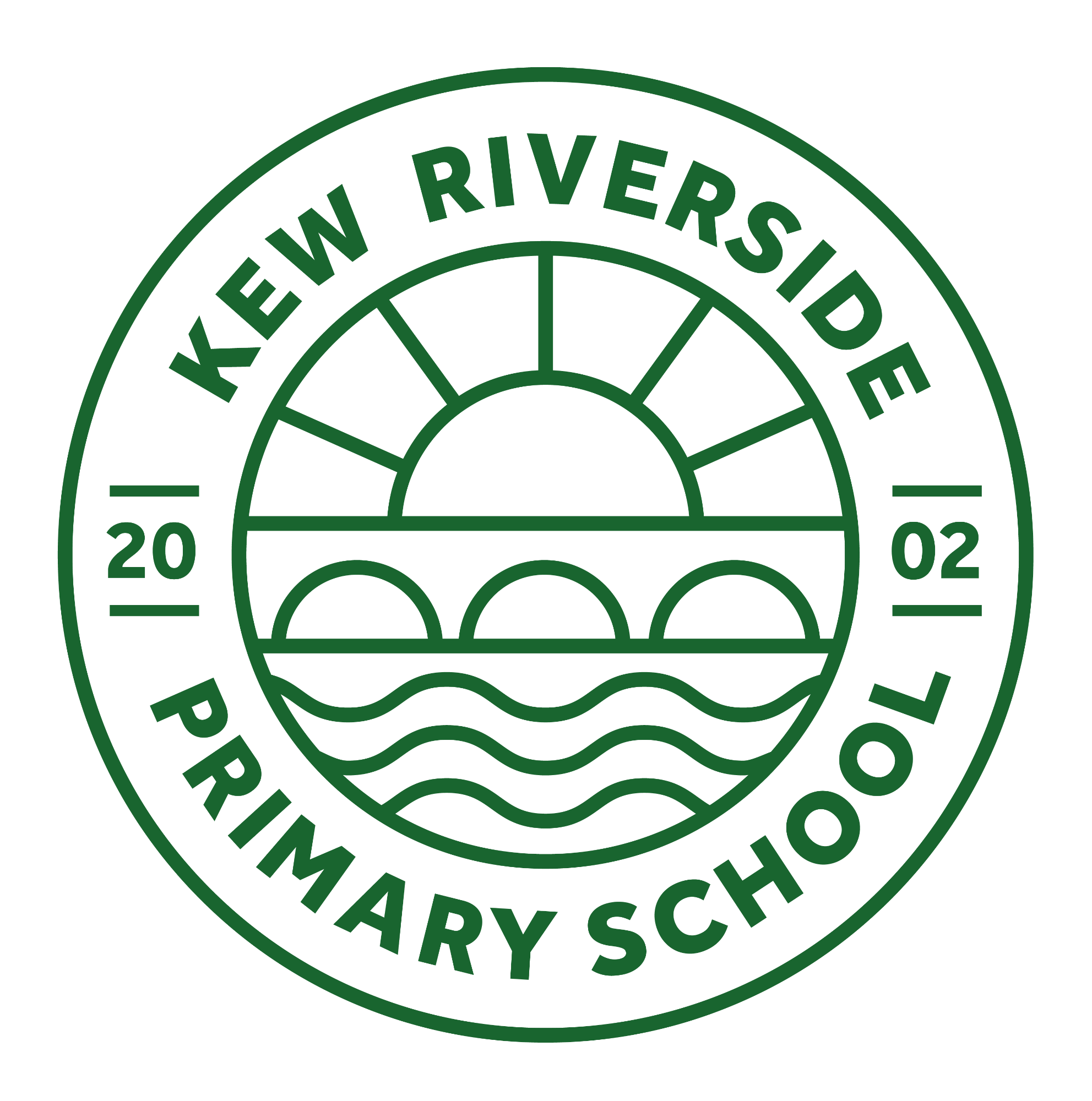Reception Admissions
A warm welcome to you if you have been allocated a space for your child at Kew Riverside Primary School for the next academic year. If you are worried about anything or need more information on the next steps, a letter will be sent out in May. Otherwise, please feel free to contact the school on 0208 487 8437.
Starting school is an exciting time for a child, and we have carefully devised a structured planned approach to the induction of all new children.
Home visits – Children who are starting school for the first time will receive a home visit from their new class teacher and another member of staff. The purpose of this visit is for:
- The child to meet the new adults within their own environment
- The teacher to understand as much as possible about the learning that the child has already experienced in the first four years of their life.
During the home visit, the teacher will play with the child and ask them some questions. The other adult will ask the parents/carers several questions. Some of this information will be used to plan the first few days at school to help make the transition from home to school smooth.
Open Evening - Summer Term. There will be an open evening for parents/carers to meet staff and learn about the year ahead and the curriculum.
Summer Term Open morning(s) - There will be an open morning for parents/carers and children to visit the school so that the child can see the classroom and the parent/carer can discuss the new environment with her/him during June/July.
First week: The children start initially part-time, 8:40 - 12:00.
Our EYFS Curriculum is designed to support:
Personal, Social, and Emotional Development
- Independence: Encourage children to dress themselves (put on shoes, coats, etc.), use the toilet independently, and wash their hands properly.
- Separation: Be comfortable separating from parents or caregivers.
- Sharing and Turn-Taking: Practice playing with others, sharing toys, and taking turns.
- Following Instructions: Be able to listen to and follow simple instructions.
- Expressing Needs and Feelings: Using words to express their needs, feelings, and emotions.
- Listening Skills: Pay attention to short stories, songs, and instructions.
- Speaking Skills: Be able to speak in short sentences, ask for help, and express ideas clearly.
- Understanding Questions: Understand and respond to basic questions like "What is your name?" or
"What do you want to play with?"
- Fine Motor Skills: Practice holding and using pencils, crayons, paintbrushes, and scissors.
Be able to manage small objects like buttons and zippers. - Gross Motor Skills: Develop skills like running, jumping, climbing, and balancing.
- Self-Care Skills: Manage simple tasks like blowing their nose, eating with utensils, and using the toilet without assistance.
- Recognising Their Name: Be able to identify their name in written form.
- Storytelling: Enjoy looking at books, listening to stories, and talking about what happened in a story.
- Basic Phonics: Familiarity with the sounds of letters (phonemes) can be helpful, but not essential.
- Counting: Count objects up to 10 or more and understand basic concepts of quantity (e.g., more/less).
- Recognising numbers: Recognise numbers, especially from 1 to 10.
- Simple Shapes and Patterns: Identify basic shapes (circle, square, triangle) and understand simple patterns.
- Curiosity: Show interest in the world around them, ask questions, and explore new things.
- Basic Understanding of Routine: Understand routines and be aware of time concepts like morning, afternoon, lunchtime, etc.
- Familiarity with the environment: Know their way around their immediate environment (home, nursery, local park).
- Art and Craft: Enjoy using different materials to draw, paint, and create.
- Role-Play: Engage in imaginative play, like pretending to cook, be a doctor, or play with dolls and figures.
- Making Friends: Feel comfortable playing and interacting with other children.
- Waiting for Their Turn: Understand the concept of waiting for their turn in games or activities.
- Tidying Up: Be willing to help tidy up toys and activities when playtime is over.
- Establish a Routine: Set up a consistent routine for waking up, meals, and bedtime, similar to what they will follow in Reception.
- Read Together Daily: Reading together helps with language development and concentration skills.
- Encourage Questions: Answer their "why" questions and encourage their natural curiosity.
- Practice Social Situations: Arrange play dates or take them to group activities so they can practice socialising with other children.
- These skills and habits can make the transition to Reception smoother and help children feel more confident as they start school.
